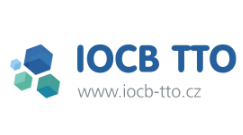We prepared synthetic polymer conjugates (called iBodies) capable of replacing antibodies in biomedical applications such as ELISA, flow cytometry, confocal microscopy, immunocytochemistry, Western Blot and immunoprecipitation. These iBodies consist of an N-(2-hydroxypropyl)methacrylamide (HPMA) copolymer decorated with low-molecular-weight compounds that function as targeting ligand (e.g., enzyme inhibitors, receptor ligands), affinity anchor (e.g., biotin) and/or imaging probe (various fluorophores). We prepared specific conjugates targeting several proteins with known ligands (glutamate carboxypeptidase II, HIV‑1 protease, carbonic anhydrase IX, fibroblast activation protein, neuraminidase, aspartic proteases, and His-tagged and GST-tagged proteins) and used these iBodies for enzyme inhibition, protein isolation, immobilization, quantification and live cell imaging as well as for classical Western Blot application. The system is remarkably modular and can be used for different biological/biochemistry assays.
IP owners:
Institute of Organic Chemistry and Biochemistry, the Czech Academy of Sciences, Prague
Institute of Macromolecular Chemistry, the Czech Academy of Sciences, Prague
Charles University, Prague
Patent applications:
PV 2015-19, PV 2015-20, PCT: CZ201605002, CZ201605003
System of iBodies is very flexible, modular. In theory, any compound, functional group or tag can be adjusted to user need. iBodies are all-rounder; one ibody can be used for different biochemistry approaches (WB, IP, ELISA, live cell imaging). Since the are conjugates of a copolymer and small organic molecules, they are chemically stable and need not be stored at a freezer.
This polymer platform can be used to produce inexpensive, stable and non-animal-based antibody substitutes directed virtually toward any protein of interest with a known ligand.
Additionally, the system enables to bind close protein homologs, such as paralogs and orthologs in their native state, which is usually difficult or impossible with antibodies. iBodies enable to target native mouse proteins because their active sites, which are important for the targeting, are usually conserved among species, which is in contrast with antibodies targeting rather non-conserved protein surface.
The limitation of the system is the need for a ligand that specifically binds to the target protein. If the ligand is not available, then it may be complicated to get a suitable binder. Moreover, for attachment to the polymer backbone, the ligand must be modified with a linker that does not significantly compromise its binding affinity.
Current stage of development enables to use iBodies primarily in the scientific research. The applications are the biochemical methods, where antibodies against above mentioned proteins are normally used (confocal microscopy, flow cytometry, immunoprecipitation, ELISA).
The anti-His-tag iBody, representing our most-developed iBody, is an excellent alternative for antibodies used in western blotting. We are developing iBodies that could be used instead of secondary antibodies used in diagnostic ELISA kits.







